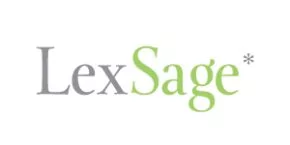Are Canadians, residents of Canada, and visitors to Canada required to report prescription medications to the Canada Border Services Agency ("CBSA")? The answer appears to be "YES". The CBSA has taken the position with a number of returning Canadians that you must declare all legally prescribed medications to them upon your return to or entry into Canada. I am not kidding. I have a number of clients who lost a NEXUS card because they had legally prescribed medications in their baggage. Often the prescription was filled outside Canada during a trip abroad.
The CBSA appears to base the requirement to declare prescription medications on a short statement written in an administrative policy D-Memo D19-9-2 "Importation and Exportation of Controlled Substances and Precursors", Appendix "A", which states:
"In accordance with the Section 56 Class Exemption for Travellers Who Are Importing or Exporting Prescription Drug Products Containing a Narcotic or Controlled Drug, individuals may import or export a controlled drug or narcotic if the following conditions are met:
- The controlled drug or narcotic was obtained under a prescription and is contained in pharmacy or hospital dispensed packaging with appropriate labelling;
- The individual is importing or exporting the controlled drug or narcotic for their own use, or for the use of a person for whom they are responsible and who is travelling with them, and when the controlled drug or narcotic meets the medical need(s) for which it has been prescribed;
- The quantity imported or exported of the controlled drug or narcotic does not exceed the lesser of a single course of treatment or a 30-day supply based on the usual daily dose prescribed;
- The controlled drug or narcotic must be in their possession at the time of entry or departure;
- In the case of import the controlled drug or narcotic must be declared to a CBSA officer at the point of entry into Canada and at the time of import; and
- In the case of export, the exportation of the controlled drug or narcotic must not contravene the laws and regulations of the country of destination." (Emphasis added)
The CBSA takes the administrative position that all travelers (Canadian citizens, Canadian residents, visitors to Canada) MUST declare all prescription medications (most prescription medications are controlled substances – you need the prescription to obtain the medications from the pharmacy) to a CBSA officer at the port of entry. The CBSA takes the position that travelers MUST be aware of every statement they have written in a published policy statement.
What this means is that all travelers MUST go up to a CBSA officer and report their prescription medications. You must have your written list of prescription medications ready for communication to a CBSA officer when you arrive in Canada/return to Canada. If you do not have a complete and written list and you forget one medication, you can get into trouble with the CBSA (your declaration was not complete). All senior citizens must report their legally prescribed medications. Any woman who uses prescribed birth control must report this information to the CBSA. Any man who has been prescribed viagra or erectile dysfunction or prostate medication must report this information to the CBSA. Any person who is taking anxiety medications must report this information to the CBSA. You see where I am going with this – most people will have to report prescription medications to the CBSA under their administrative position.
The reality is that travelers do not go up to the nearest CBSA officer and discuss their medications. It would unnecessarily prolong the customs clearance process if every traveler was to report of a CBSA officer their prescription medications.
However, if a CBSA officer patrolling the Customs Clearance Area (at the baggage carousel) asks about prescription medications, the traveler is required by law to answer the question truthfully, completely, and honestly (another reason to have your list ready). If a traveler is sent to the Secondary Inspection Area, the traveler is required by law to answer the question truthfully, completely, and honestly. This has always been the case.
What is new and different is that the CBSA has taken the position that a traveler MUST report prescription medications without being asked. The CBSA determined that my client contravened the Customs Act for failing to declare prescription medications without being asked. The CBSA took away his NEXUS membership card because he did not go up to a CBSA officer and offer information about a minor prescription he obtained while outside Canada. A secondary inspection was non-resultant but for the prescription medication that was within his declaration (the value reported) upon returning to Canada. My client has filed an appeal (a request for decision of the Minister of Public Safety and Emergency Preparedness) and the Recourse Directorate has confirmed that every traveler MUST report all prescription medications upon entry to Canada even though the question is not on the E311 Declaration Card or asked by the NEXUS automated kiosk. This rule would also apply at land border crossings and ports.
This might be something that Canada's Privacy Commissioner will look into – what medications are prescribed to a person is often sensitive and embarrassing information. What is important to know is that there isn't a specific law in the Customs Act or the Food and Drugs Act (or regulations) that clearly require every traveler to report prescription medications). Since the question is not asked on the E311 Declaration Card or included in automated kiosk questions, the requirement to report medications is not advertised by the CBSA.
The content of this article is intended to provide a general guide to the subject matter. Specialist advice should be sought about your specific circumstances.

